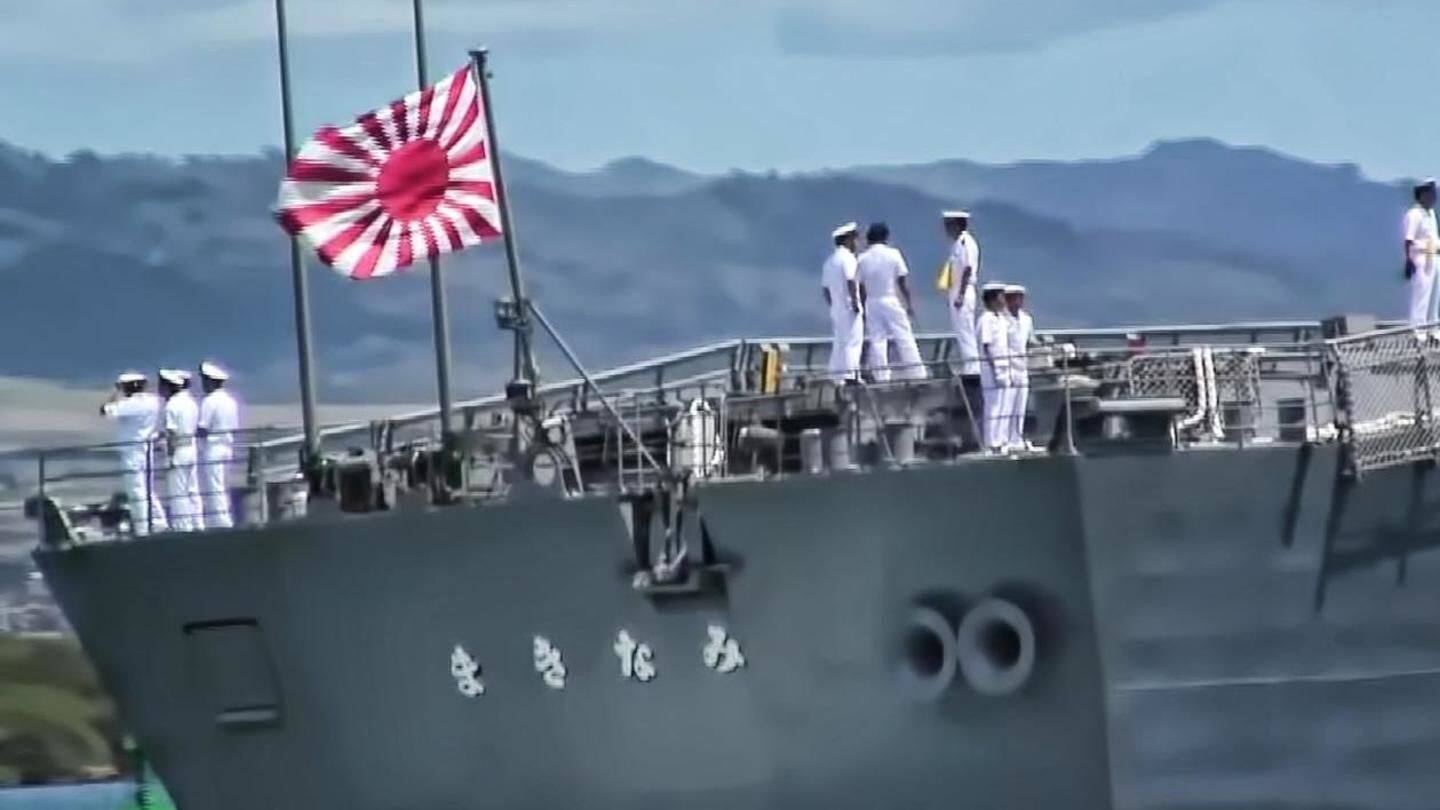
S-Korea renews call for Japan to remove 'rising sun' flag
What's the story
South Korea yesterday reiterated a demand that Japan should remove its "rising sun" naval flag from a warship participating in an international fleet review at Jeju island next week.
Many South Koreans associate the symbol with Japanese military aggression during World War II and have expressed anger over the potential display of the alleged "war-crime flag" during the October 10-14 event.
Here's more.
Details
Japan should be more considerate of S-Korean's feelings, says Minister
South Korean Foreign Minister Kang Kyung-wha yesterday said Japan should be more considerate about how South Koreans remember its brutal colonial rule of the Korean Peninsula before the end of the war.
South Korea's navy has asked all 14 countries participating in the fleet review to display only their national flags and the South Korean flag on their vessels.
Rules
Japan hasn't budged, says it's mandatory to display the flag
Kyung-wha has also conveyed Seoul's position to Tokyo through diplomatic channels.
But Japan has balked at the demand, with Japan's Defense Minister Itsunori Onodera maintaining that the ship's display of the red-and-white flag would be mandatory under Japan's laws.
The flag, portraying a red disc with 16 rays extending outward, has been used as the ensign of Japan's Maritime Self-Defense Force since 1954.
Information
Possible options to be reviewed before international action, says Kyung-wha
When asked whether South Korea would raise the issue of Japan's usage of the flag with UN, Kyung-wha, first Korean woman to hold a high-level position in UN, said her Ministry will review "possible and appropriate options" before deciding whether to take stronger international action.
Futile?
South Korea's attempts not likely to succeed
It's debatable whether any S-Korean attempt to ban Japan from using the flag would be successful.
Some experts say it'd be difficult to equate the Kyokujitsu-ki (the flag) with Nazi's swastika, as many S-Koreans do.
Meanwhile, S-Korea's Defense Minister Jeong Kyeong-doo acknowledged to lawmakers recently that there's not much the country can do under "international custom" if Japan insists on displaying the rising-sun flag.
Information
Next week's fleet review comes amid anti-Japanese sentiment
Japanese vessels flew rising-sun flags during fleet reviews in S-Korea in 1998 and 2008. But next week's fleet review comes amid anti-Japanese sentiment, fueled by bitterness over a 2015 agreement between the countries to settle a row over Korean women forced into wartime sexual slavery.
Protest
South Koreans took to streets to protest against Japan's plans
Some S-Koreans also see Japan's conservative government as failing to sufficiently support S-Korea's diplomatic push to improve relations with N-Korea following a period of animosity over the North's nuclear and missile tests.
Hundreds of protesters on October 3 expressed anger over Japan's plans over the rising-sun flag during a weekly rally in Seoul denouncing sexual slavery by Japan's World War II military.
Action
S-Korean lawmaker has proposed bill to ban the debated symbol
A ruling party lawmaker in South Korea has even proposed a bill banning the symbol on ships and aircraft entering South Korea and also at concerts and sports events.
Internet users have filed more than 150 online petitions to the office of South Korean President Moon Jae-in, asking him to stop the Japanese destroyer from coming to Jeju, largest island off Korean Peninsula coast.
Quote
Tell Abe to be careful, warns a 92-year-old protester
Among the protesters is a 92-year-old, who was a sexual slavery victim during the war. "They won't be able to come with the rising-sun flag. Tell this to (Japan's Prime Minister) Abe. Tell him to be careful," warned Kim Bok-dong during the October 3 rally.